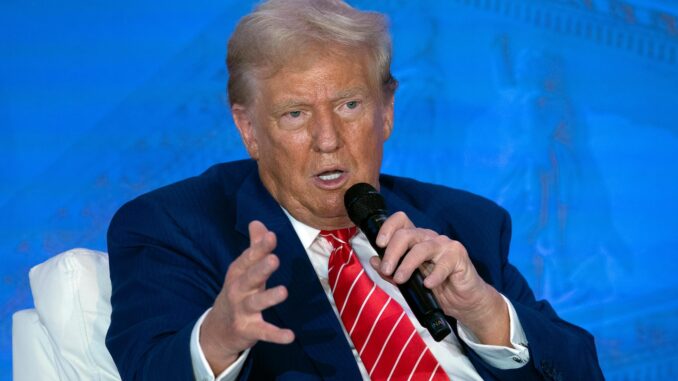
WASHINGTON — Lawyers for Donald Trump intend to urge a judge to dismiss the federal election subversion case against the former president following a Supreme Court opinion that narrowed the scope of the landmark prosecution, according to a court filing late Friday.
The defense team foreshadowed a series of likely challenges to the case as it seeks to delay, if not eliminate altogether, a criminal case charging Trump with plotting to overturn the results of the 2020 presidential election.
Those include arguments that a new and more limited indictment issued by prosecutors this week still contains allegations for which Trump, as a former president, is entitled to immunity, such as his conversations with former Vice President Mike Pence. Defense lawyers also intend to seek the dismissal of the case on the same grounds that a federal judge in Florida cited in tossing out a separate prosecution of Trump last month.
The federal court filing in Washington, submitted jointly by prosecutors and defense lawyers, offers dueling proposals for next steps in the criminal case and precedes a status conference set for next week — the first court appearance in the case in months.
The document is an acknowledgment of the radically altered legal landscape since special counsel Jack Smith filed the indictment in June 2023 and the challenges prosecutors have encountered in trying to hold Trump accountable this year.
Though prosecutors initially accused Trump of wide-ranging schemes to cling to power and to block the peaceful transfer of power, they must now contend with the aftermath of a Supreme Court opinion that said former presidents enjoy absolute immunity for core constitutional acts and are presumptively immune for other official acts they take as president.
Smith’s team responded to the ruling with a new indictment this week that cut out allegations related to Trump’s dealings with the Justice Department, an area of conduct for which the court said Trump was immune.
But Trump’s lawyers don’t think prosecutors went far enough and say they “strongly maintain that many classes of conduct alleged in the Superseding Indictment are immune — including, but not limited to, Tweets and public statements about the federal 2020 Presidential election, communications with state officials about the federal election, and allegations relating to alternate slates of electors.”


Be the first to comment